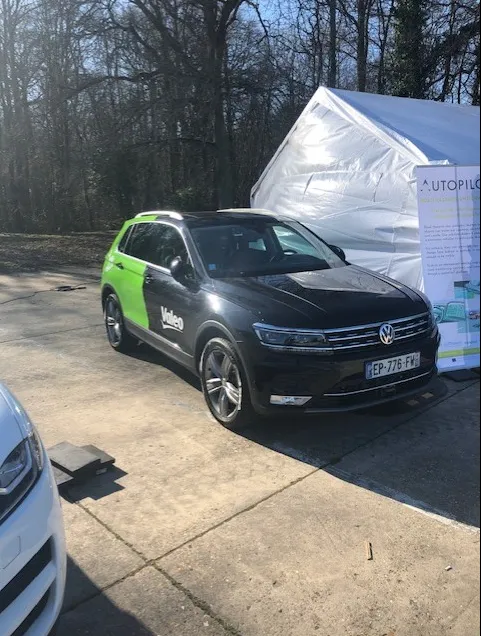The world’s first solar powered cycle road officially opens today along the N203 at Krommenie, north-west of Amsterdam in the Netherlands.
Developed by TNO, the Province of North-Holland, Ooms Civiel and Imtech Traffic&Infra, the SolaRoad pilot project is a road surface that acts as a solar panel, converting sunlight into electricity.
November 12, 2014
Read time: 2 mins

The world’s first solar powered cycle road officially opens today along the N203 at Krommenie, north-west of Amsterdam in the Netherlands.
Developed by7087 TNO, the Province of North-Holland, Ooms Civiel and 769 Imtech Traffic&Infra, the SolaRoad pilot project is a road surface that acts as a solar panel, converting sunlight into electricity.
The 100 metre road consists of prefabricated concrete slabs each 2.5 by 3.5 metres. Crystalline silicon solar cells are installed in one travel direction underneath a one cm thick tempered glass top layer, which has to be translucent to let sunlight pass through, yet also provide a safe, skid-resistant surface. No solar cells are fitted in the opposite direction, which will be used to test various alternative road surfaces during the trial.
During the three-year trial period, various measurements will be taken and tests performed to see how the road behaves in practice, what it is like to cycle over and the amount of energy it produces. Future plans using the solar power generated by the road will be used for practical applications in street lighting, traffic systems, households and, ultimately, electric cars, which would drive on the surface.
Developed by
The 100 metre road consists of prefabricated concrete slabs each 2.5 by 3.5 metres. Crystalline silicon solar cells are installed in one travel direction underneath a one cm thick tempered glass top layer, which has to be translucent to let sunlight pass through, yet also provide a safe, skid-resistant surface. No solar cells are fitted in the opposite direction, which will be used to test various alternative road surfaces during the trial.
During the three-year trial period, various measurements will be taken and tests performed to see how the road behaves in practice, what it is like to cycle over and the amount of energy it produces. Future plans using the solar power generated by the road will be used for practical applications in street lighting, traffic systems, households and, ultimately, electric cars, which would drive on the surface.









